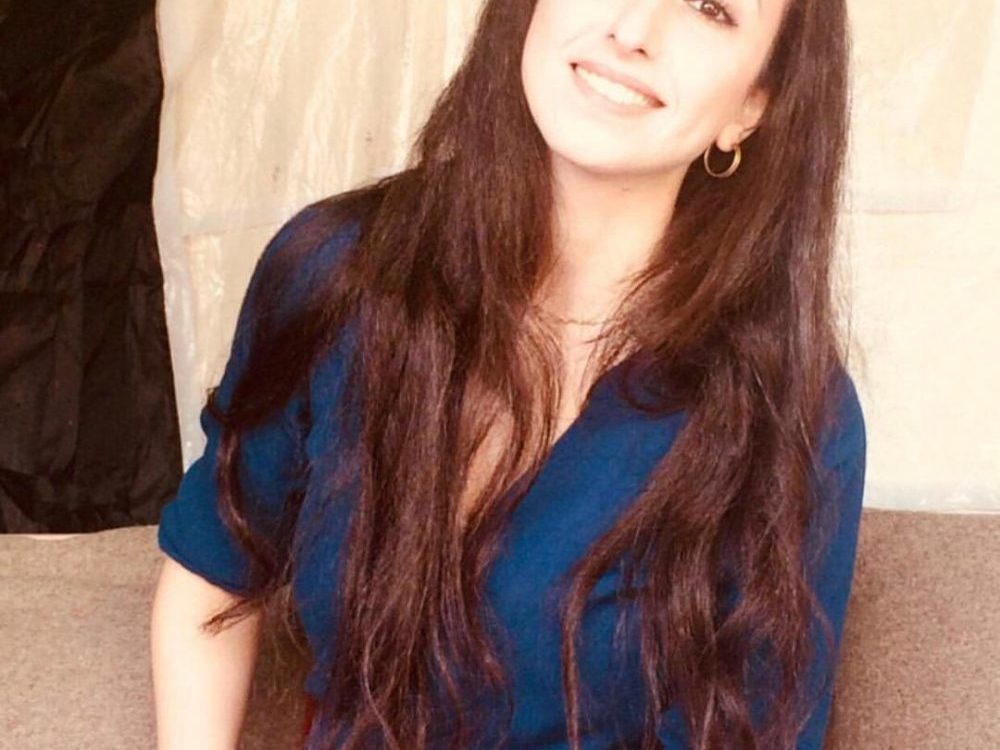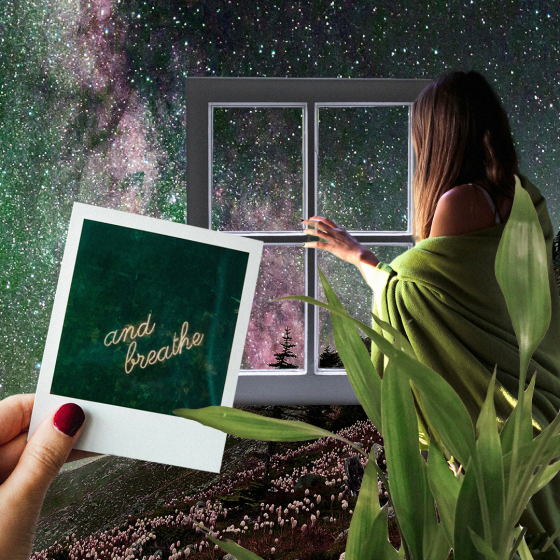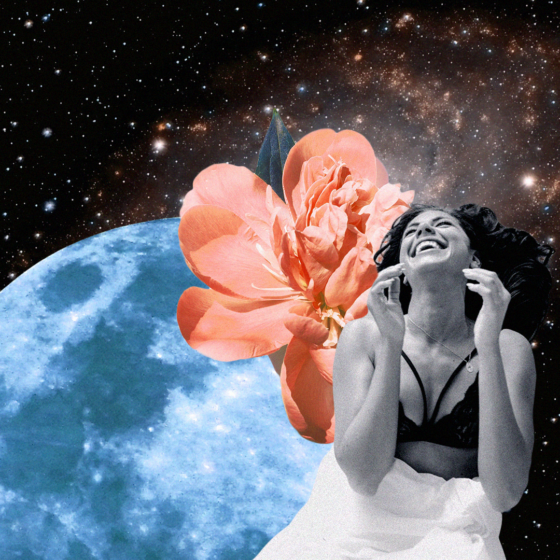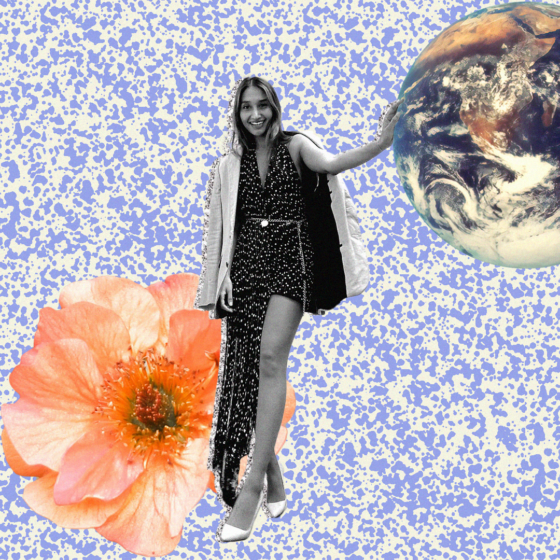Last year, award-winning Palestinan author, journalist and women’s rights campaigner Nayrouz Qarmout was invited to speak at the Edinburgh International Book Festival. Her appearance highlighted the difficulties faced by already marginalised writers, following two visa refusals, with a third visa finally being accepted after public outcry. This year, she visited again, to launch her newly-translated collection of short stories, The Sea Cloak and Other Stories, which was the bestselling book of the festival. I caught up with her to talk about her writing and about how life in Gaza has shaped her work.
Can you tell me about your experience at EIBF?
The festival was more than wonderful. I was surprised by the number of people interested in my appearances in Edinburgh, and their interaction during the events I was a part of. People asked very perceptive and intelligent questions at the first event with the Scottish writer Ali Smith, singer-songwriter Karine Polwart, and the famous and brave novelist Val McDermid, where we discussed the meaning of the term ‘Home’ for refugees and migrants. I also read one of my stories at an ‘Open Book Reading’ event for Syrian & Kurdish women and children. I officially launched my book, The Sea Cloak and Other Stories, at an event chaired by Esa Aldegheri. I was really moved by the audience’s questions. They asked excellent questions, about the smallest of things that drive human beings to create and overcome their surroundings, and I really felt their thirst for knowledge. I’m very grateful to the festival for all the arrangements they made and for the events they organized.
It seems that this year was a little easier on the visa front.
In terms of the visa front, it has been smoother this year and I thank the Edinburgh Festival and the British Council for their support in obtaining a visa for me in such a short time. It was the borders in my country that were a problem this time, but I was able to cross at the last minute.
The Sea Cloak and Other Stories is about the idea of ‘homeland’ – how has your own experience of “homeland” shaped these stories?
Perhaps life gave me a special path that has allowed me a different view of the meaning of the term “homeland”. Maybe it was a result of being born in the Yarmouk refugee camp in Syria, or maybe it was moving to the Gaza Strip after the Oslo peace accords, or moving around the different camps and the various neighbourhoods in Gaza. This has allowed me to see and compare how Palestinians live, whether in the camps and other areas, or at home on our land. I had a very colourful and diverse extended family, spanning all political and cultural aspects of Palestinian life.
I moved in the 1990s when I was a child, from a more liberal eastern society that didn’t have a peace agreement with the Israeli occupation, to a more conservative Arab society that was under occupation. A child’s eye is more observant. The idea of a homeland was an ever-expanding notion in my mind, and it still is to this day. Now we hear about the loss of intellectual life that has invaded Syrian society, as a result of the deadly war that’s been going on for the last few years.
How has your work at the Ministry of Women’s Affairs contributed to your work as a whole?
Working at the Ministry allowed me to gage the needs of Palestinian women, and to understand their awareness about their rights and duties. Whether it’s by being present in areas close to the occupation, or in the city centre and vital areas. The way society views women of all ages, and the way they participate in developing it and its evolvement has always been on my mind, even before I started working at the Ministry of Women’s Affairs. I worked in coordination with NGOs and government and civil agencies, and I founded the Violence Against Women Unit. As a civil servant, I enrolled in a year-long training program on the role of gender in policy, law, the media visions and the public budget. That work supported the presence of women in decision-making and political parties.
A while ago, I stopped working at the Ministry to focus on writing full-time. I’m sure my experience has left the context of my progressive understanding of the status of Palestinian women in my mind and in my imagination; it has given me the tools to discover the stories that resonate with women from childhood to adulthood with more accuracy. But being very honest, after my experience, I don’t like these isolationist feminist cantons. I want women’s voices to reach all elements of society, not just these small areas. I think that will pave the way towards independence and a national identity that can be part of the wider world, based on strong foundations that can elevate human concepts towards growth and modernity. The world has become smaller, both in terms of size and its ability to contain different points of view. I mentioned at the festival that creativity is a revolution, and I believe this revolution is a woman.
What are the specific challenges of being a writer living in Gaza?
Gaza is a big prison that’s been under occupation for many years. Israel’s 2005 withdrawal from it is superficial. We are a large demographic living in a small area, incapable of taking control of our tiniest living needs even for one day, which makes our daily life very unstable. We don’t feel safe, we expect the arrival of an inevitable bomb or explosion anytime. You can imagine how this constant pressure on our imagination, and adaptation to the daily living situation adds to the deterioration of intellectual life that is required to develop the individual in us. That leads to a fall back on misconceptions of the role of religion in shaping human behavior and creates an unbalanced society, all under the political and economic threats that haunt everyone who lives in the sector or cities, villages and other camps in occupied Palestine. Palestinian women have been able to survive and stand up to the challenge; they were able to get degrees and work in various fields and business. But what I am looking for is not only these shallow roles assigned by society.
I write for everyone, regardless of their gender, and wherever they are. The challenges are the same for everybody regardless of geography. My job as a writer is to present the world to people in an artistic style that surpasses reality and the environment. I hope that I will not be limited to a specific geography in my artistic imagination and the way I present it. Through my stories I address the details of feelings, will, and understanding in every human being who lives on this planet.
The Sea Cloak and Other Stories, written by Nayrouz Qarmout and translated by Perween Richards, is available now, from Comma Press. https://commapress.co.uk/books/the-sea-cloak









